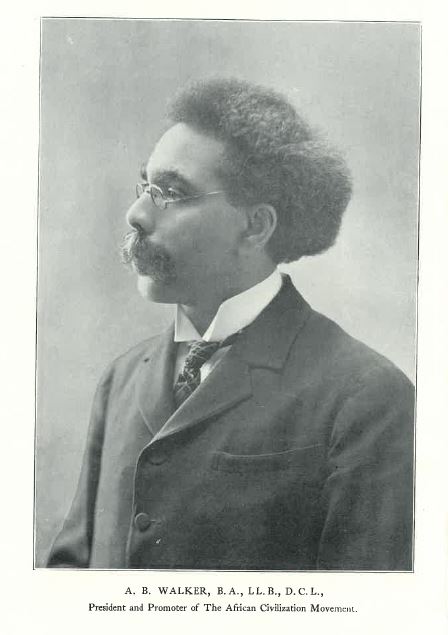Abraham Beverley Walker is considered the first Canadian-born black lawyer, but a New Brunswick historian says Walker’s accomplishments have been all but forgotten by history.

That’s about to change – Walker will be honoured posthumously with the Order of New Brunswick this week in Fredericton.
“This is to right a wrong,” said historian Peter Little. “I think it was a terrible injustice how he was treated. He was alive and then swept into the dust bin of history after he died.”
READ MORE: Black entrepreneurs launch inaugural ‘Our Story’ artisan market in Halifax
Little had never heard of Walker until he was asked to do some research for the New Brunswick Black History Society.
He learned that Walker was born near Saint John, N.B. in August 1851, and educated locally before studying law at the National University Law School in Washington D.C.
Walker became an attorney of the Supreme Court of New Brunswick in 1881 and was called to the bar the following year.
Little said Walker later took some courses at the Saint John Law School, becoming the first student of colour to enrol.
READ MORE: ‘Be white by 6 AM’: 50 years on, the ‘first’ black Mountie reflects on his decade in scarlet

Get breaking National news
Walker opened a law practice in Saint John but he faced much racism, making it hard to get clients, and the practice foundered after just a few years.
The local black community circulated a petition in 1896 or 1897 to get Walker the designation of Queen’s Counsel.
“He was told that he would be getting it but when the local white lawyers found about it, they complained to the government and said ‘If you give him that designation then you can take ours back,’ – so he was dropped off the list,” Little said.
He said Walker was later promised designation of King’s Counsel, but that also didn’t happen.
READ MORE: ‘Obama effect’ doubles visitors to Washington, D.C. portrait gallery
Little said there were many examples of how white lawyers resented him. In one instance, there was a big gala for the law society and every lawyer in the city was invited except Abraham Walker.
“He had a tough row to hoe,” Little said. “He would be the only New Brunswick black lawyer for another for 122 years.”
After closing his practice, Walker went to Atlanta for a few years and then returned to Saint John to serve as the law society librarian.
He also published a magazine called “Neith.” Five editions were printed.
But Walker’s time in Atlanta had fuelled an interest in the civil rights movement and he started lecturing all over North America.
“He was an extremely intelligent man. He spoke five languages fluently and said he had a passing knowledge in four others,” Little said.
Abraham Walker died of tuberculosis in 1909, just shy of turning 60 years old.
READ MORE: Edmonton man shines light on Alberta’s racist past with interactive archive
Little began searching for any family of Walker two-and-a-half years ago, learning that while Walker had five children, four of them died at a young age.
That search hit a dead-end until just a matter of weeks ago when Little received a phone call from Debbie Little (no relation to Peter) who is Walker’s granddaughter and lives in Michigan.
She will be making the trek to New Brunswick with her son to attend the investiture ceremony on Wednesday for Walker and nine others.
Established in December 2000, the Order of New Brunswick is the highest honour of the Province of New Brunswick. It recognizes individuals who have made outstanding contributions to the social, cultural or economic well-being of New Brunswick and its residents.
Peter Little said while he will be accepting the award on behalf of Walker, he plans to then give it to the family where it belongs.
This report by the Canadian Press was first published Oct. 27, 2019.







Comments